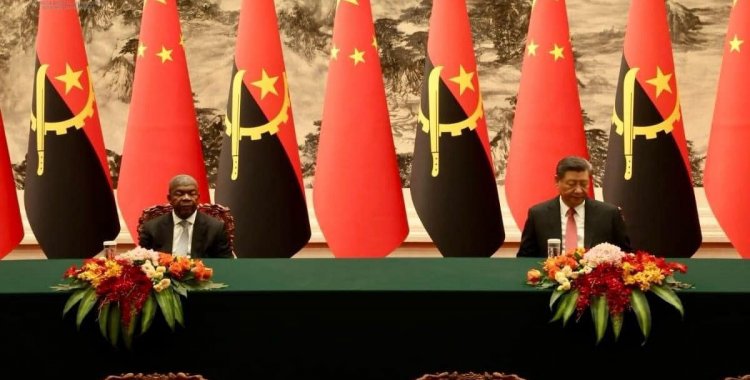In an analysis entitled: "Angola: the American challenge and the Chinese reaction", the Center for Studies for the Economic and Social Development of Africa (Cedesa) addresses the new foreign policy of the president, João Lourenço, in a comparative perspective with that of his predecessor, José Eduardo dos Santos, the potential of the Lobito Corridor and the "renewed Chinese vigor in Angola" in the face of failed financing and withdrawals from some projects with Western partnerships.
José Eduardo dos Santos' non-foreign policy allowed, according to Cedesa academics, that Angola became "a kind of private property for a few, in the face of the world's widespread indifference and the contentment of sophisticated profiteers", while João Lourenço, at on the contrary, "wanted to put Angola on the world's radar", positioning the country as a regional power, getting closer to the United States and the Gulf Arab countries, but maintaining relations with China and Russia.
Taking as an example the Lobito Corridor, which became the flag of "intense Angola-USA cooperation", the researchers highlight the "maximum priority given to this railway link that crosses Angola, from the port of Lobito to the Democratic Republic of Congo and Zambia, at the recent G7 summit.
The analysis highlights that more than a North American response to Chinese mining dominance in Africa, the objective will be less the transport of ores, but above all the creation of an area of agro-industrial development parallel to the corridor whose products will be transported through it.
Cedesa, an entity dedicated to the study and research of political and economic issues in Southern Africa, highlights that the Angolan Carrinho group, considered a leader in the agro-industrial sector, is already "a key part of the American strategy for Africa".
Analysts note, on the other hand, the relevant Chinese presence in the Lobito Atlantic Railway (LAR) consortium, formed by Trafigura and Vecturis and Mota-Engil, whose main shareholder is China Communication Construction, owned by the Chinese State.
"Therefore, in the end, the Lobito Corridor will never be a North American project to oppose China, but surely, to be successful, it will have to be a Sino-American cooperative project", concludes Cedesa.
The analysis also focuses on the Chinese desire to "not give away the points" in Angola and a "renewed vigor" that was felt after João Lourenço's recent trip to Beijing, in March this year, with the return to large infrastructure projects.
At issue are three recent announcements: Chinese participation in Angola's first highway, with 1400 kilometers to connect the south to the north of the country; the Angolan executive's intention to terminate the contract with the consortium that would build the Soyo refinery, led by the North American Quanten, which could open the doors to China; the withdrawal of the Germans from Siemens Mobility from the Luanda light rail project, with the Government assuming the costs with Chinese financing.
"It is a major turnaround and once again demonstrates the inability or unwillingness of Western companies to invest in Angola" which "is once again completely open and in need of China to ensure its development".
Cedesa emphasizes that "American and Western wishes are not enough" because Angola needs money.
And while the United States, in decisive moments, "does not have practical and operational solutions, getting lost in plans, projects, trips, financial engineering and good intentions", China seems to be facing a new opportunity in Angola which "is in conditions to enjoy".
Cedesa is directed by Felipe de Saavedra e Santos (president), doctor in History and Educational Sciences and coordinator of the Angola Research Network and Rui Verde (vice-president), doctor in Law, currently at the University of Oxford and member of Chatham House.







